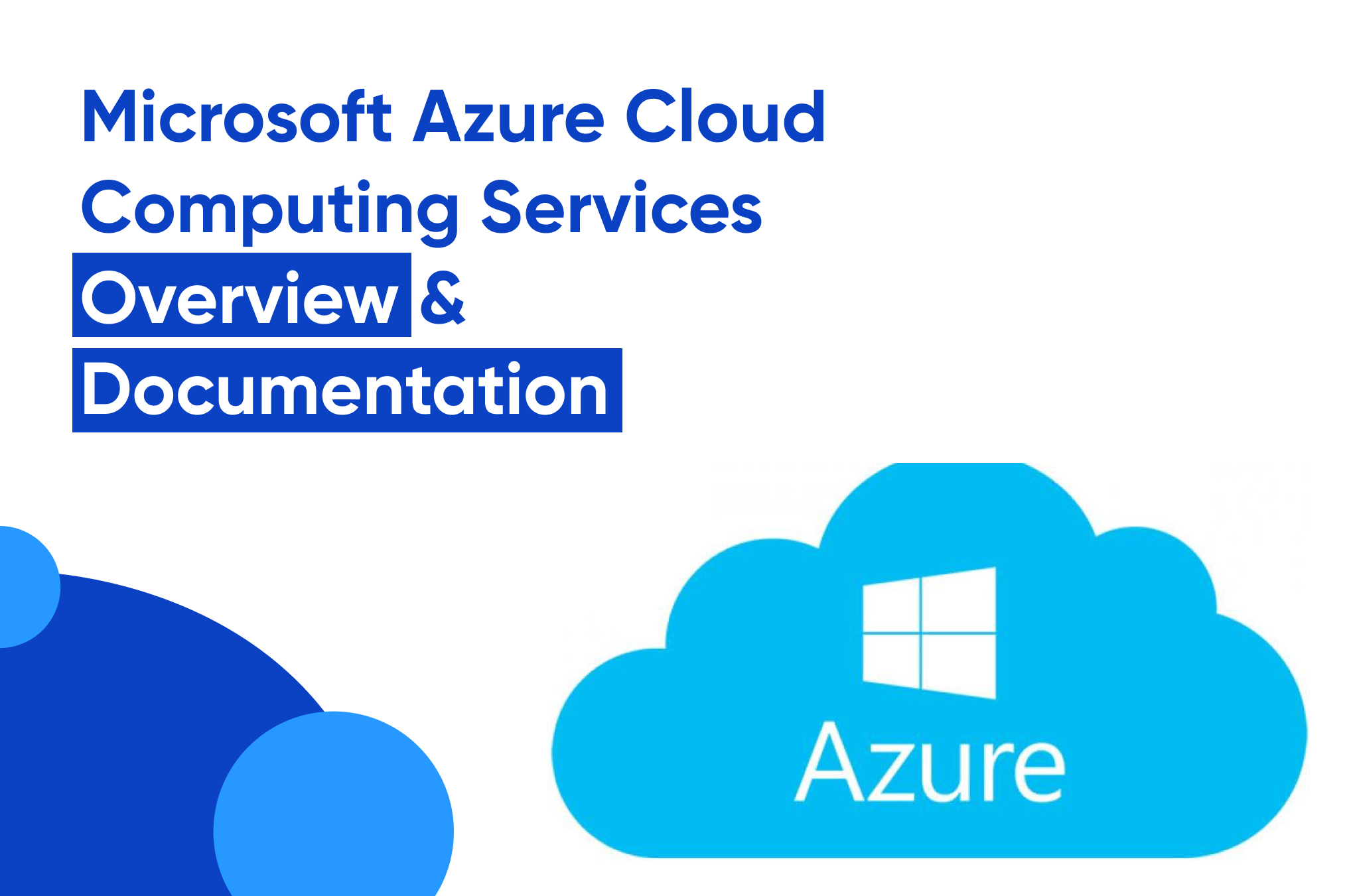

Microsoft Azure usually alluded to as Azure, is a cloud computing service made by Microsoft for building, testing, sending, and overseeing applications and administrations through Microsoft-oversaw server farms. It gives software as a service (SaaS), platform as a service (PaaS), and foundation as assistance (IaaS) and supports various programming dialects, instruments, and structures, including both Microsoft-explicit and outsider programming and frameworks.
Sky blue was reported in October 2008, began with the codename "Project Red Dog", and delivered on February 1, 2010, as Windows Azure prior to being renamed to Microsoft Azure on March 25, 2014. Azure uses large-scale virtualization at Microsoft data centers worldwide and it offers more than 600 services.
Azure Cloud Services is an example of a platform as a service (PaaS). Like Azure App Service, this technology is designed to support applications that are scalable, reliable, and inexpensive to operate. In the same way that App Service is hosted on virtual machines (VMs), so too is Azure Cloud Services. However, you have more control over the VMs. You can install your own software on VMs that use Azure Cloud Services, and you can access them remotely.
More control likewise implies less convenience. Except if you need the extra control alternatives, it's normally faster and simpler to get a web application going in the Web Apps highlight of App Service contrasted with Azure Cloud Services.
There are two kinds of Azure Cloud Services jobs. The main distinction between the two is the way your job is facilitated on the VMs:
Web role: Automatically sends and has your application through IIS.
Worker role: Does not utilize IIS, and runs your application-independent.
Azure Cloud Services also provides monitoring. Like Virtual Machines, it detects a failed physical server and restarts the VMs that were running on that server on a new machine. But Azure Cloud Services also detects failed VMs and applications, not just hardware failures. Unlike Virtual Machines, it has an agent inside each web and worker role, and so it's able to start new VMs and application instances when failures occur.
The PaaS nature of Azure Cloud Services has other implications, too. One of the most important is that applications built on this technology should be written to run correctly when any web or worker role instance fails. To achieve this, an Azure Cloud Services application shouldn't maintain state in the file system of its own VMs. Unlike VMs created with Virtual Machines, writes made to Azure Cloud Services VMs aren't persistent. There's nothing like a Virtual Machines data disk. Instead, an Azure Cloud Services application should explicitly write all state to Azure SQL Database, blobs, tables, or some other external storage. Building applications this way makes them easier to scale and more resistant to failure, which is both important goals of Azure Cloud Services.
Azure DevOps Server (formerly Team Foundation Server (TFS) and Visual Studio Team System (VSTS)) is a Microsoft product that provides version control (either with Team Foundation Version Control (TFVC) or Git), reporting, requirements management, project management (for both agile software development and waterfall teams), automated builds, testing and release management capabilities. It covers the entire application lifecycle and enables DevOps capabilities. Azure DevOps can be used as a back-end to numerous integrated development environments (IDEs) but is tailored for Microsoft Visual Studio and Eclipse on all platforms.
The Azure Storage platform is Microsoft's cloud storage solution for modern data storage scenarios. Core storage services offer a massively scalable object store for data objects, disk storage for Azure virtual machines (VMs), a file system service for the cloud, a messaging store for reliable messaging, and a NoSQL store.
Azure Kubernetes Service (AKS) offers serverless Kubernetes, an integrated continuous integration and continuous delivery (CI/CD) experience, and enterprise-grade security and governance. Unite your development and operations teams on a single platform to rapidly build, deliver and scale applications with confidence.
Azure Data Lake includes all the capabilities required to make it easy for developers, data scientists, and analysts to store data of any size, shape, and speed, and do all types of processing and analytics across platforms and languages. It removes the complexities of ingesting and storing all of your data while making it faster to get up and running with batch, streaming, and interactive analytics. Azure Data Lake works with existing IT investments for identity, management, and security for simplified data management and governance. It also integrates seamlessly with operational stores and data warehouses so you can extend current data applications. We have drawn on the experience of working with enterprise customers and running some of the largest scale processing and analytics in the world for Microsoft businesses like Office 365, Xbox Live, Azure, Windows, Bing, and Skype. Azure Data Lake solves many of the productivity and scalability challenges that prevent you from maximizing the value of your data assets with a service that is ready to meet your current and future business needs.
Microsoft Azure is Infrastructure in the Cloud. It is simply a processor, disk, and RAM, which means users are still required to upload and patch the software.
Microsoft Office 365 is a Software as a Service (SaaS) that is managed and routinely upgraded by Microsoft.
Most of the teams within Azure have dependencies on each other. It gives a chance to work with engineers outside of your team who work on a wide variety of projects. Nice opportunity to broaden your skillset and build your network.
Azure Machine Learning is a cloud-based predictive analytics service that offers a streamlined experience for data scientists of all skill levels.
There are 3 key attributes to work with Big Data.
By learning the skills you can also become Microsoft Azure Certified person. This certification (a solid first step Microsoft Azure certification for developers) proves you know the basics of developing apps and services for Azure, with the skills needed to design, build, test, and maintain cloud solutions.